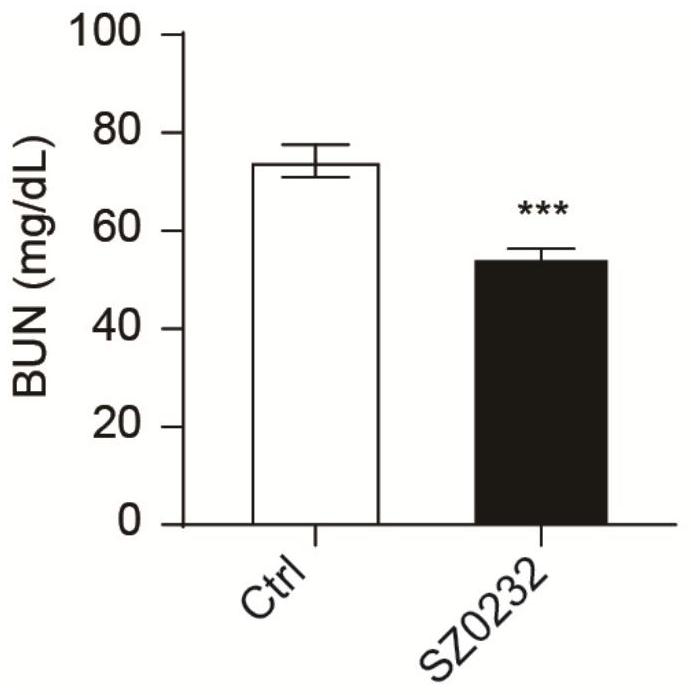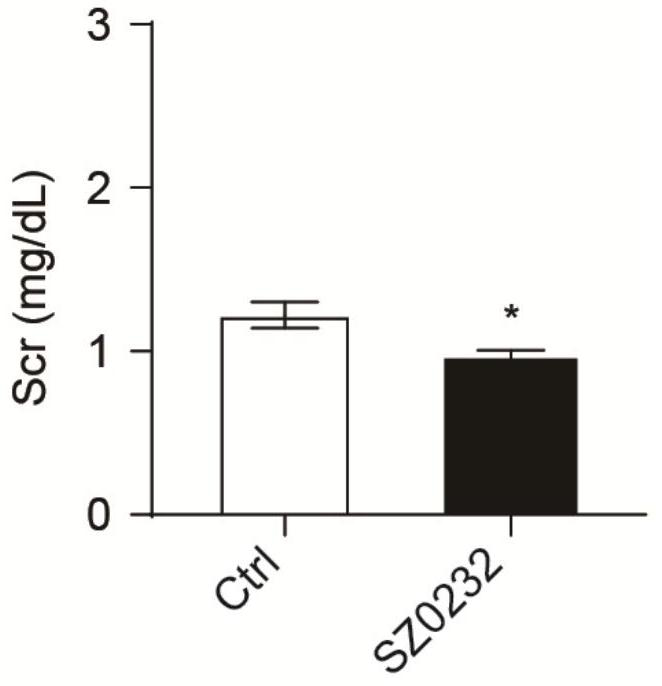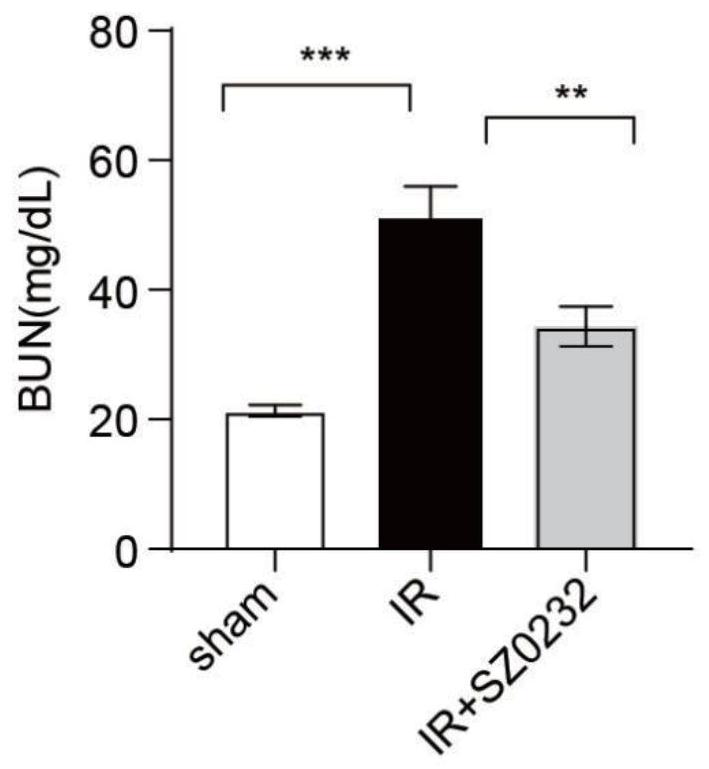Application of benzenesulfonamide compound in preparation of medicine for treating acute kidney injury
A technology of acute kidney injury and benzenesulfonamide, applied in the field of biomedicine, can solve problems such as reducing the quality of life of patients, and achieve the effects of improving acute kidney injury and reducing morphological damage of kidney tissue.
- Summary
- Abstract
- Description
- Claims
- Application Information
AI Technical Summary
Problems solved by technology
Method used
Image
Examples
Embodiment 1
[0028] Example 1 Construction of cisplatin-induced acute kidney injury model in mice
[0029] 8-week-old C57BL / 6J mice were selected and randomly divided into two groups: SZ0232 administration group and normal saline group; the mice in the administration group were intraperitoneally injected with 0.5 mg / kg of SZ0232, and the mice in the normal saline group were given the same dose of physiological Saline was administered once a day for a week; subsequently, 20 mg / kg of cisplatin was administered intraperitoneally once, and SZ0232 or normal saline was continued at the same time, and the corresponding indicators were observed after 72 hours.
Embodiment 2
[0030] Example 2 Construction of mouse acute kidney injury model induced by ischemia-reperfusion
[0031] Select 8-week-old C57BL / 6J mice and randomly divide them into three groups: sham operation group + normal saline, ischemia-reperfusion + normal saline group, ischemia-reperfusion + SZ0232; kg of SZ0232, the mice in the normal saline group were given equal doses of normal saline, once a day, for one week continuously; then, the mice were anesthetized by intraperitoneal injection of 1% pentobarbital sodium (0.08ml / 10g). Ischemia-reperfusion group: Make an incision of 0.8-1.0 cm on each side of the back, find the renal pedicle and quickly block the right renal pedicle with a non-invasive micro arterial clip. After 50 minutes, the left kidney was resected after the left renal pedicle was ligated. The abdominal cavity was closed with layered sutures. After the operation, the mice were kept in an environment of 24-29°C, the vital signs of the mice were closely observed, and wa...
Embodiment 3
[0032] Embodiment 3 Biochemical Index Determination
[0033] Detection of BUN and SCr: Blood was collected before killing the mice, and centrifuged at 3000 g for 15 minutes. The separated supernatant serum was collected and operated according to the instructions (BUN detection kit from Nanjing Jiancheng Biotechnology Co., Ltd., SCr kit from Bioassays Systems).
PUM
 Login to View More
Login to View More Abstract
Description
Claims
Application Information
 Login to View More
Login to View More - R&D
- Intellectual Property
- Life Sciences
- Materials
- Tech Scout
- Unparalleled Data Quality
- Higher Quality Content
- 60% Fewer Hallucinations
Browse by: Latest US Patents, China's latest patents, Technical Efficacy Thesaurus, Application Domain, Technology Topic, Popular Technical Reports.
© 2025 PatSnap. All rights reserved.Legal|Privacy policy|Modern Slavery Act Transparency Statement|Sitemap|About US| Contact US: help@patsnap.com



